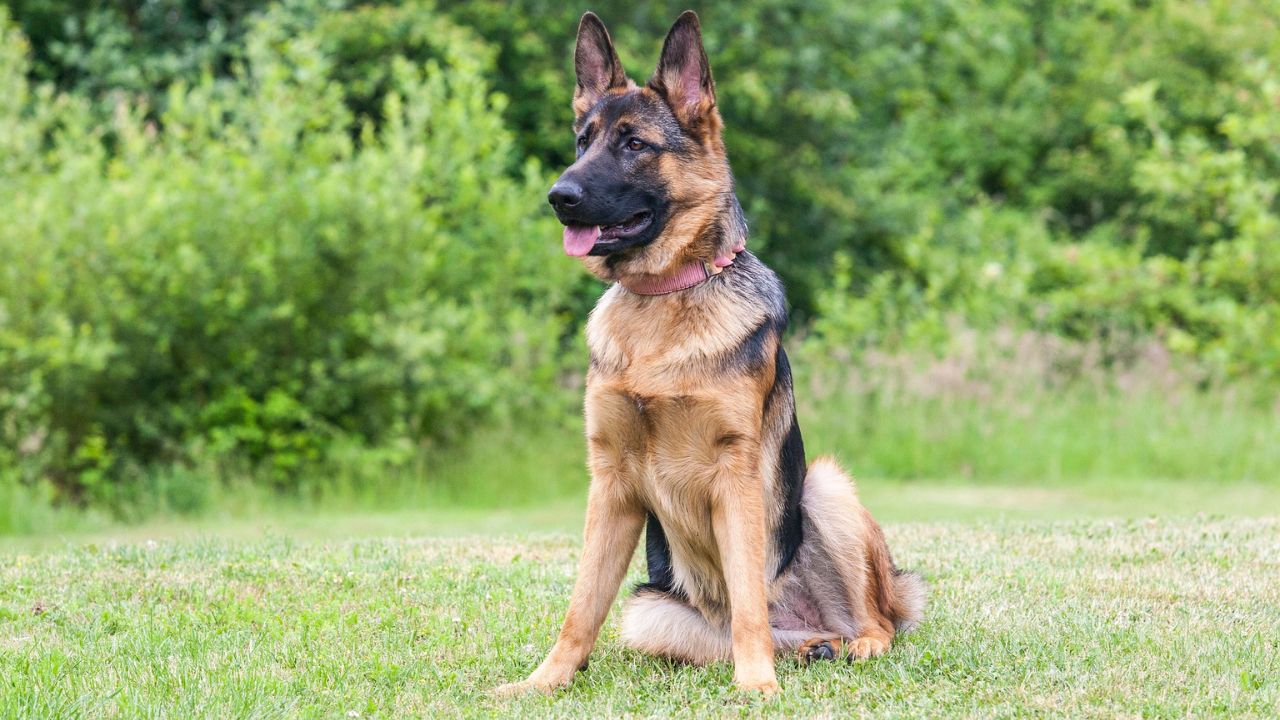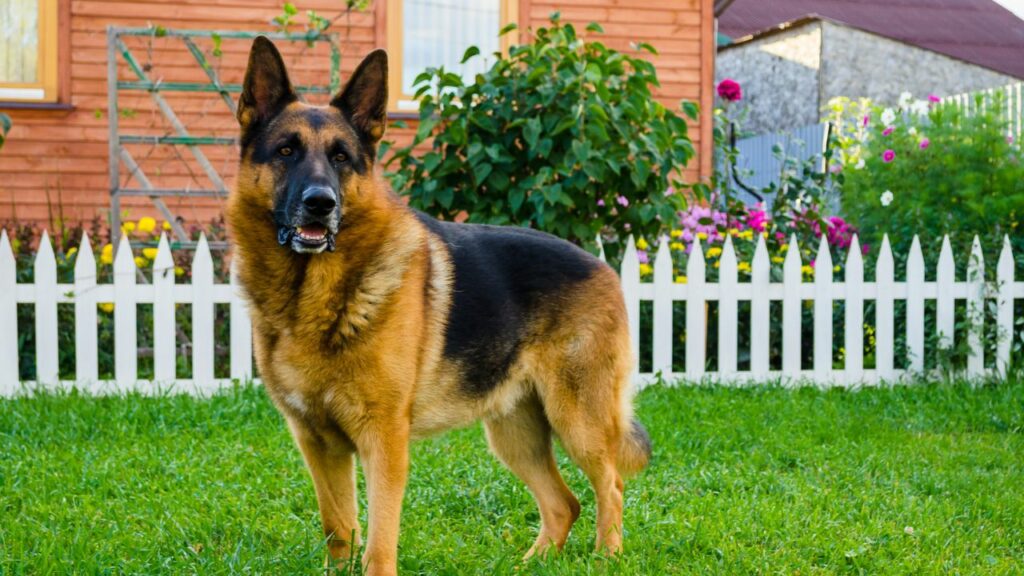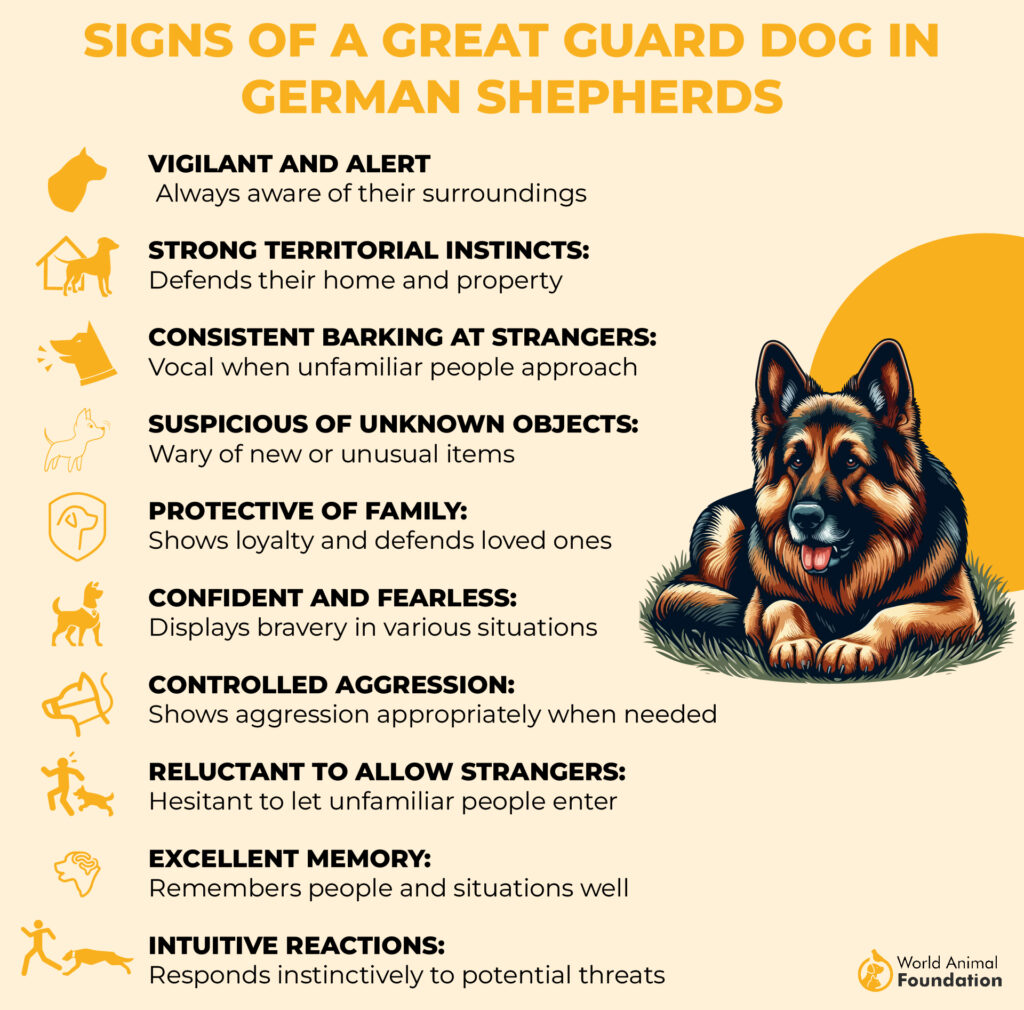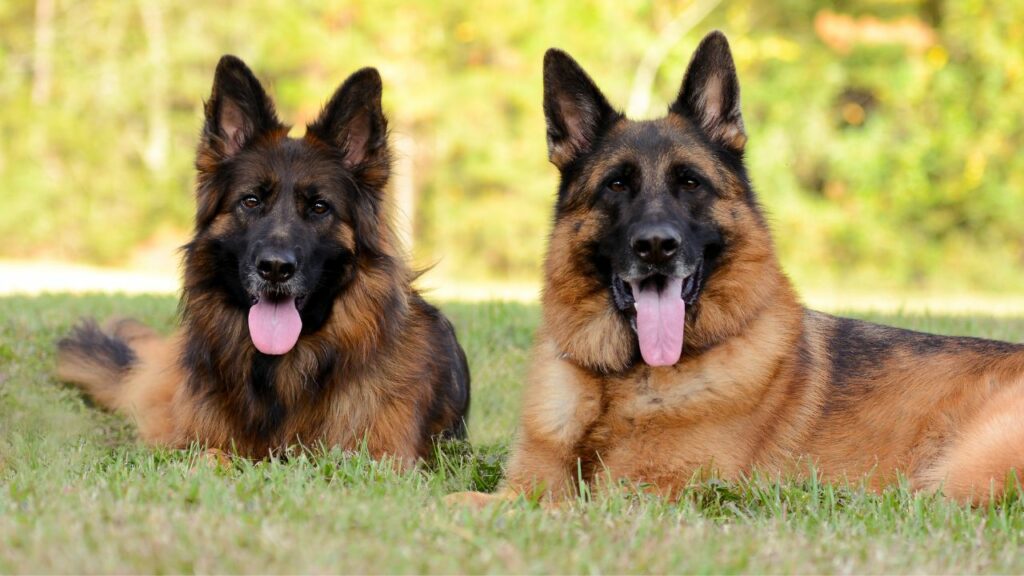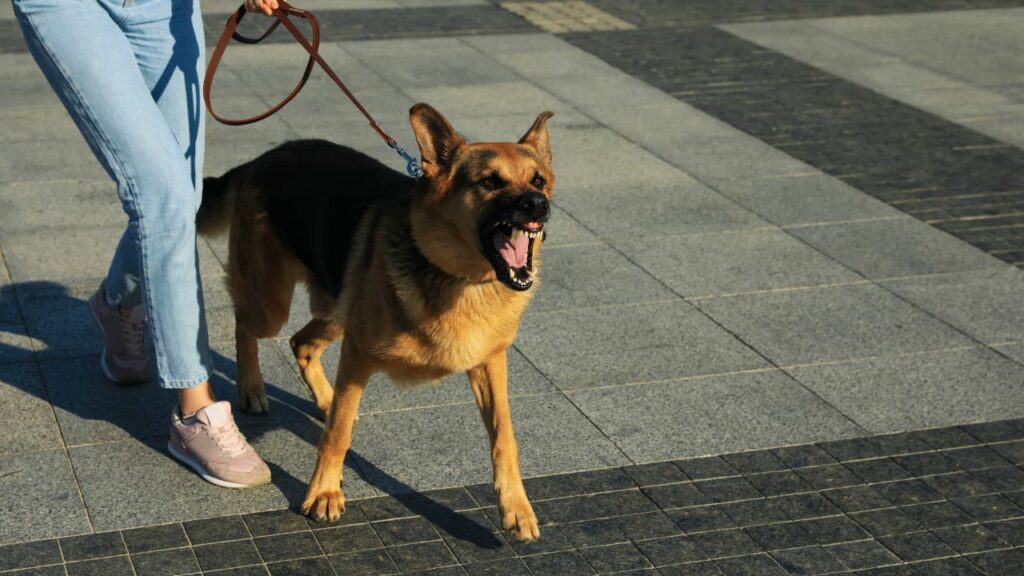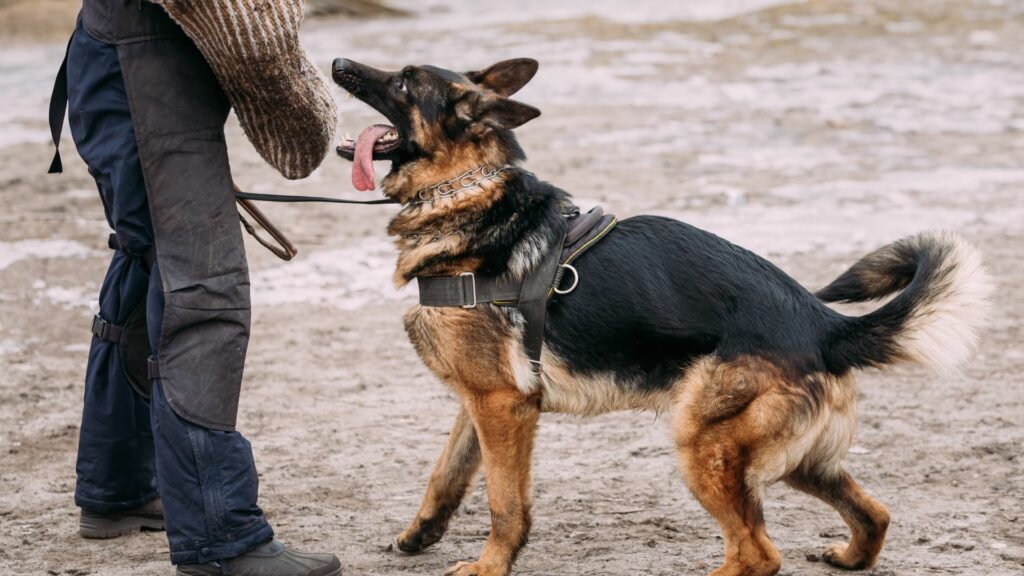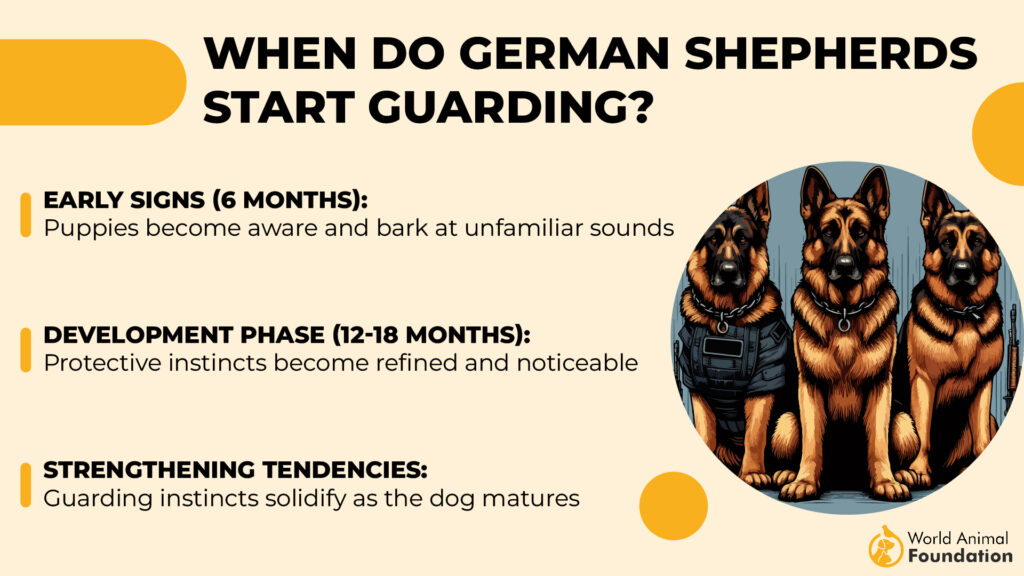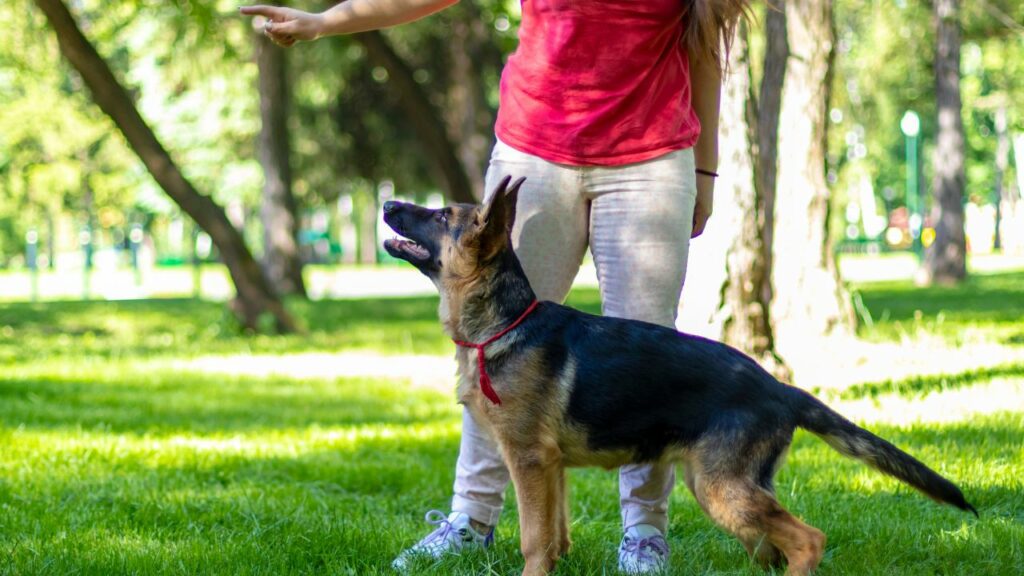The imposing stature and inherent intelligence of German Shepherds often lead to the question: are they good guard dogs? While their loyal and protective instincts are undeniable, the answer is more nuanced than a simple yes. A German Shepherd’s effectiveness as a guard dog hinges on proper training, socialization, and a clear understanding of their natural tendencies. Exploring these factors will illuminate whether a German Shepherd is truly a good fit for your security needs, going beyond the breed’s reputation to examine the realities of responsible guardianship.
German Shepherds consistently rank at the top of the AKC’s list of most popular dog breeds, and it’s easy to see why. Their unparalleled loyalty, courage, confidence, eagerness to learn, and protective instincts make them truly special.
These incredible dogs are adaptable, excelling in a wide range of roles, including guide and assistance work for the disabled, police and military service, herding, search and rescue, drug detection, competitive obedience, and most importantly, as faithful companions.
Known for their intelligence, loyalty, and bravery, many people wonder: Are German Shepherds good guard dogs? The answer is a resounding yes!
Let’s explore the qualities that make German Shepherds an outstanding choice for protection and security and why they are trusted by so many to safeguard their homes and loved ones.
Are German Shepherds Good Guard Dogs
When we think of the German Shepherd, the images of a loyal ‘Guard Dog‘ or ‘Police Dog‘ often come to mind. These dogs have a strong instinctive drive and exude self-confidence. The German Shepherd Dog originated in 1899 and was created by Max von Stephanitz, a career captain in the German cavalry. Initially, the breed was developed as a working dog for herding, flock protection, and farm work.
@user9395473745393
Introducing the World’s Best Guard Dog ! The German Shepherd ! #germanshepherd #dogs #puppy
♬ original sound – user9395473745393 – user9395473745393
German Shepherds are good guard dogs as they possess a natural genetic predisposition to protect their family, and their intelligence and trainability make them ideal candidates for official roles as guard dogs. Orvis points out that since the First World War, German Shepherds have enthusiastically embraced their role in protection and security, proving themselves to be exceptional guard dogs.
German Shepherds are naturally protective and will keep a watchful eye on their home and family. Their powerful build makes them effective guard dogs, but harnessing their protective instincts requires proper training. It is essential to teach German Shepherds commands early on, especially how to stand down, to ensure they can distinguish between threats and non-threats, particularly if you have many visitors to your home.
Family Dog, Guard Dog, or Both?
Many people worry that a German Shepherd may not be safe around their family or children when considering a personal protection dog. However, German Shepherds are a breed that thrives on having a purpose and loves to work. As proud members of the herding breed group, they enjoy tasks that give them a sense of duty, which makes them both loyal pets and excellent protectors.
Despite their reputation for being tough, German Shepherds, especially females, are generally sweet-natured and good with children. Males might be less tolerant of rough play and, unless raised with children and well-trained, should be supervised.
German Shepherds are naturally protective of their family and territory, which makes them wary of strangers. This wariness doesn’t mean they are aggressive; proper socialization and training ensure they behave appropriately. The German Shepherd Dog makes an exceptional companion for children, especially when introduced to them early and properly socialized.
Often described as a mix between a babysitter and a cop, the GSD is both gentle and protective. While he is trustworthy around the children in his family, his large size can unintentionally cause injury to a small child. Therefore, it’s important to be vigilant when a German Shepherd and young children live together in your home.
Why German Shepherds Excel as Protection Dogs?
German Shepherds are incredibly versatile, often referred to as the chameleons of the dog world. They are frequently seen on the news sniffing out contraband, a testament to their popularity among police K9 units. Their deep, intimidating bark also makes them an excellent home security system.
Here are some specific characteristics that make German Shepherds ideal for personal protection work:
@shelly_bae82
Love my German Shepard.. where so undeserving of there love and loyalty. #dog #dogs #dogmom #dogsoftiktok #dogsofttiktok #doglover #dogtok #dogtraining #doglife #germanshepherd #germanshepherdsoftiktok #germanshepherdpuppy #fyp #parati #atlanta #loyal #trust #love #brave #
♬ original sound – Shelly
Strong Protective Instinct
German Shepherds possess a strong natural instinct to protect, honed through selective breeding for tasks requiring them to safeguard herds from predators. This protective nature extends beyond just sheep; they are fiercely loyal to their human families. When properly trained, German Shepherds can differentiate between friends and potential threats, making them excellent guard dogs for homes.
High Intelligence and Trainability
One of the key factors in a dog’s ability to guard is its intelligence and capacity for training, and German Shepherds rank high in both areas. Their keen intelligence allows them to pick up on cues that might indicate a threat. Coupled with their eagerness to please, this intellectual prowess means they can be trained to respond appropriately in various situations.
Physical Strength and Agility
In terms of physical capability, German Shepherds are well-equipped for guarding tasks. Their imposing size, powerful build, and strong bite force make them formidable opponents for any intruder. Additionally, their agility and speed further enhance their physical strength. The mere presence of a German Shepherd can act as a deterrent against potential threats.
Heightened Alertness
@chickenchick86
#alwaysonalert #germanshepherd #gsdlove #guarddog #imashepherd #germanshepherdowner #5reasonsyoushouldgetagermanshepherd #germanshepherdmom
♬ original sound – Sadiethesableshepherd
A personal protection dog must be alert and aware of its surroundings, and German Shepherds excel in this aspect. With their acute sense of hearing and sharp eyesight, they can detect unusual sounds or movements. This heightened alertness ensures they won’t miss potential threats, allowing them to react swiftly when necessary. Even when you’re asleep, your German Shepherd is ever-watchful, ensuring your safety.
Deep Family Bond
Beyond their physical and mental attributes, German Shepherds also have a deep bond with their families, adding another layer of dedication to their role as protectors. Forbes notes that this strong loyalty drives them to defend their home and loved ones fiercely. When a German Shepherd senses a threat to their family, their protective instincts are triggered intensely.
Training a German Shepherd to Be a Guard Dog
Although German Shepherd dogs have natural guarding instincts, proper training is crucial. While they can make excellent protection and guard dogs, they need to be well-trained and socialized to be both safe and effective. It’s also important to consider that owning a protection dog requires significant time and resources, which may not be suitable for everyone.
Early Socialization
View this post on Instagram
Training should begin when they are puppies, starting with socialization. German Shepherds need to be introduced to various people, animals, environments, and situations. This exposure helps build their confidence, making them less likely to act aggressively in unusual circumstances.
Obedience Classes
Obedience training is essential as it teaches them basic commands and strengthens the bond between dog and owner. These classes also provide an excellent opportunity for further socialization, helping the puppy become well-adjusted.
Companionship and Dual Roles
German Shepherds raised as guard dogs are typically also raised as companions for the family or owner they will protect. This dual role teaches them the difference between being a loving pet and a working guard dog and how to switch between these two roles effectively.
Distinguishing Friend from Foe
GSDs need to learn the difference between a guest who is a stranger but is welcome in the home and a stranger who is not welcome. They should never display aggressive behavior towards their family members, yet remain alert for potential threats. Proper guard dog training ensures they do not bark or act aggressively towards anyone or anything that is not a threat, maintaining a balance between protection and friendliness.
Conclusion
In conclusion, German Shepherds are exceptional guard dogs, thanks to their intelligence, loyalty, and physical capabilities. Originally bred for herding and protection, they have evolved into versatile dogs, excelling in roles such as police dogs, service dogs, and personal protection dogs. Their guarding behavior and ability to read body language make them ideal for search and rescue operations as well. However, not every German Shepherd is naturally suited to be a guard dog without early training and proper socialization.
Owning a German Shepherd requires a commitment to consistent protection training and understanding their needs as athletic dogs. These large dogs form a strong bond with their families and can be both excellent family pets and vigilant protectors. Proper training ensures they can distinguish between friends and threats. Whether for guarding, companionship, or working alongside other dogs, German Shepherds remain one of the best choices for those seeking both a good guard dog and a loyal family member.
German Shepherds undoubtedly possess many qualities that make them excellent guard dogs. Their intelligence, trainability, protective instincts, and imposing presence are significant deterrents. However, responsible ownership is crucial. Proper training and socialization are essential to ensure the dog’s temperament remains balanced and its protective instincts are channeled effectively. While a German Shepherd can be a powerful asset for security, they are not inherently aggressive and should not be viewed solely as weapons. Their loyalty and devotion also make them wonderful companions, provided their needs are met with consistent care and training.

